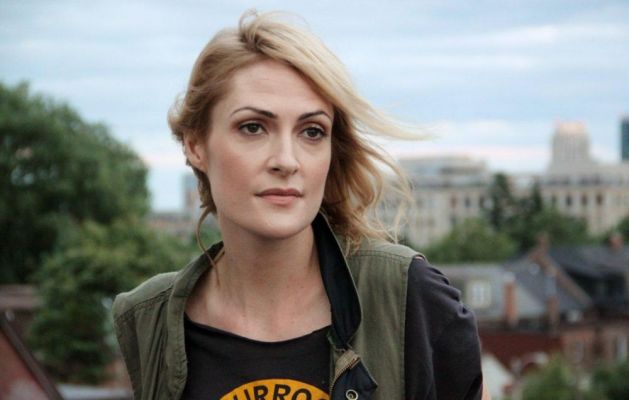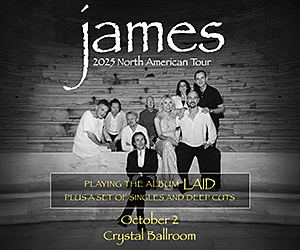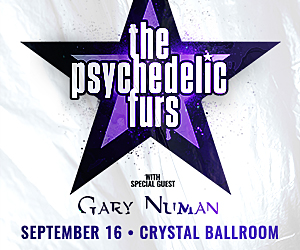Home > Rock
02/18/2016
Metric: Q&A with vocalist Emily Haines
By WILLIAM KENNEDY // A blend of pristine songwriting, immaculate production and synth-powered new wave and post-punk, At Roseland February 20
The word indie rock gets thrown around a lot in the music business. Sometimes it’s warranted, sometimes not so much. When it comes to Toronto, Canada’s Metric, it’s a perfect description—though Metric’s sound is far from the messy and shambling guitar rock generally associated with the genre.
Instead, with a blend of pristine songwriting, immaculate production and synth-powered new wave and post-punk, Metric have produced great pure-pop music for over a decade—almost entirely on indie labels and without selling out to the Max Martin/Dr. Luke production cabal that dominates the landscape of pop heavy-hitters like Katy Perry and Taylor Swift.
Metric have been nominated and won several Juno Awards in Canada, and in 2012 the band released their 5th studio record Synthetica on their own label Metro Music International. Few artists have ever achieved so much commercial success while maintaining artistic credibility.
Metric comes in Oregon in support of last year’s Pagans in Vegas. Portland’s February 19th show at the Roseland is sold-out. Tickets are still available for Metric’s February 20th show at McDonald Theatre.
Metric vocalist Emily Haines sat down to chat with Oregon Music News about life as an independent artist, the state of the music business and The Velvet Underground.
Metric’s current tour is called “I can see the end.” Is Metric trying to tell us something?
There’s a little bit of awareness on the shape of the future. Where does it end? Maybe we can see it? It’s important for people to realize that independent artists, like us, who manage to survive and even thrive—you’re affected by the climate of the culture that you’re living in. A lot of times it’s like we’re the last band standing.
Metric seem almost a throwback to pop songwriting within a band environment as opposed to the mega-writer/producer and pop star model of current mainstream music. Have we lost something or am I just being nostalgic?
Yeah, the same two writers are behind 90% of the top-ten songs. It’s not just a certain producer having a moment, it’s almost like it’s the writers that are sticking around and it’s the artists that are just passing through.
There’s always been a relationship between amazing, talented artists who aren’t writers and they have writers and that works. What we have now is a little weirder. It just feels like bands—they really can’t survive. In DJ culture, the guy walks in with a laptop and walks out with a million bucks. By contrast the whole ethos of the band lifestyle is that you employ a lot of people. We bring on the road about 50 people.
We’re very grateful to still be going strong. But I think people need to realize there are consequences to the changes we’ve seen in music and how it affects artists.
Do you think the old model will come back?
It depends on the stranglehold. We felt really optimistic about the power of the Internet to democratize things for the creative class in general—for writers, and musicians and artists—and I think there was a window there where it looked promising. But what we see is the power did change hands, it just changed over our heads: from major labels to the tech industry. I think musically it will always evolve. I remember in 2001 when we were first coming up it was a complete nightmare of boy bands. The Strokes completely changed that landscape. It brought back live rock ‘n’ roll. That was a great moment.
I feel totally optimistic. People who support musicians, it’s important for them to realize they really do play a role. That’s why we’re so grateful our fans and listeners keep staying with us, and young people continue to be attracted to the band.
Your track “Gimme Sympathy” off 2009’s Fantasies record is one of my favorite Metric tunes. In it you sing: “Who’d you rather be/the Beatles or the Rolling Stones.” So I’ll ask you: who would you rather be?
I gotta say this is what I said to Lou Reed when I met him: it’s The Velvet Underground.








